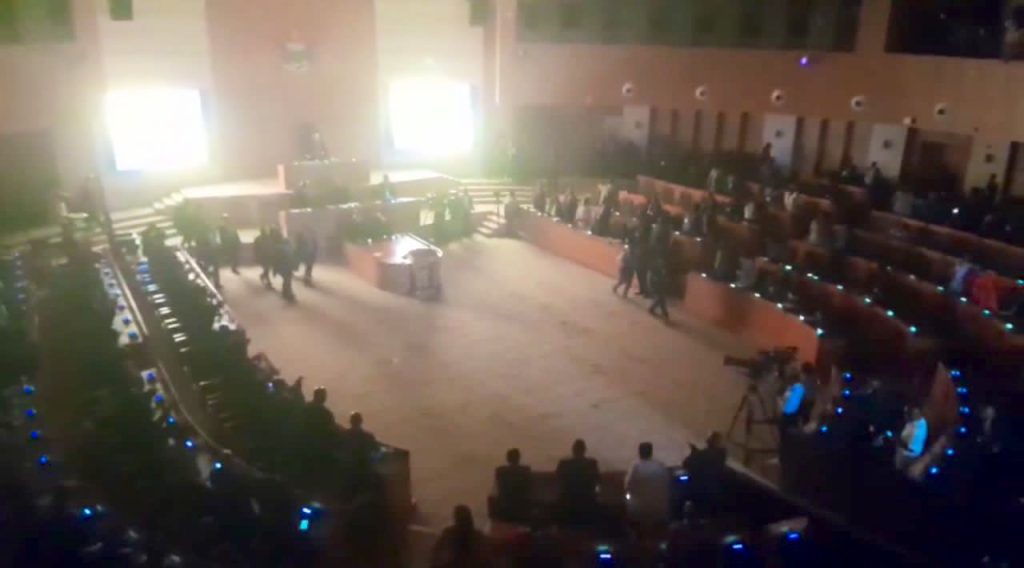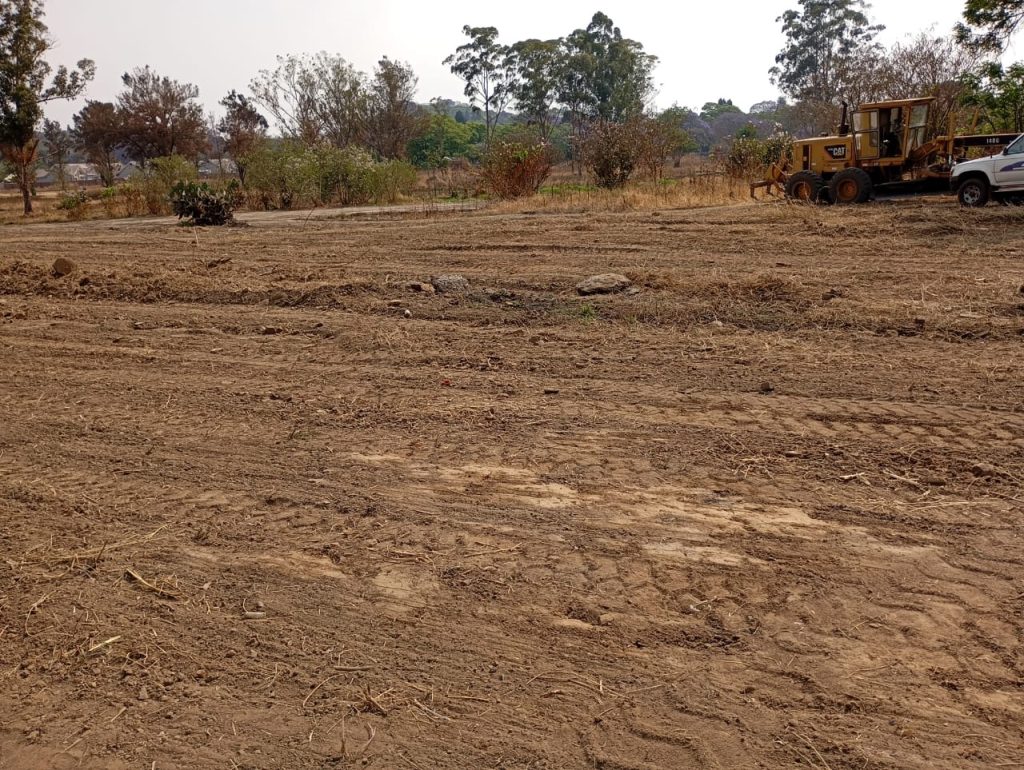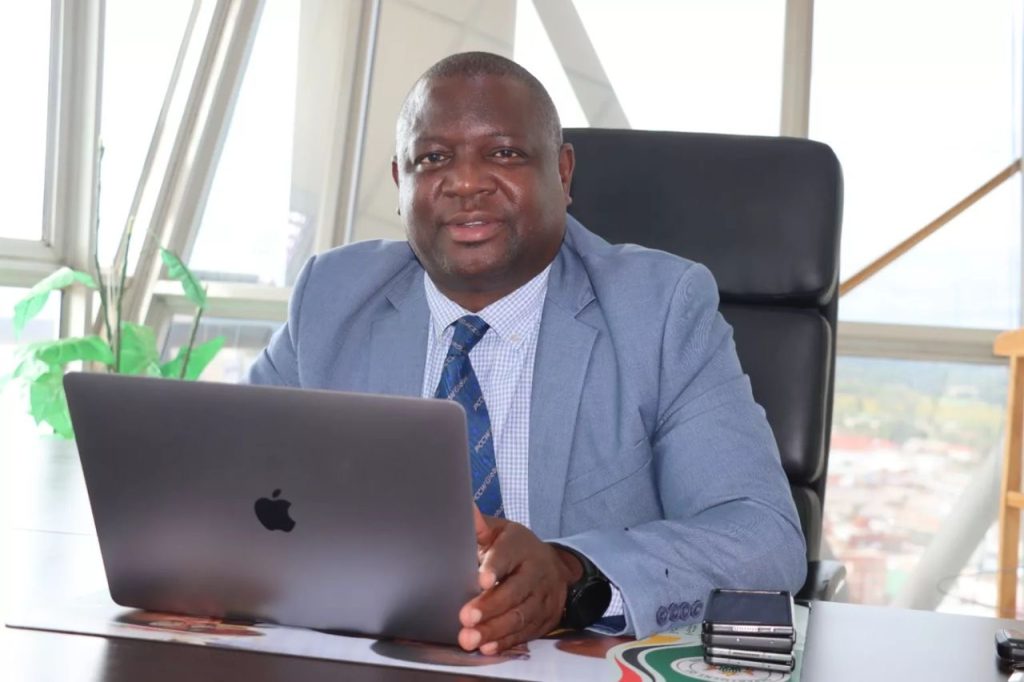By Staff Reporter
Harare – President Emmerson Mnangagwa exited the New Parliament Building in darkness after attending the 2025 National Budget presentation by Finance Minister Mthuli Ncube.
The blackout occurred as Ncube concluded his budget speech in Mt Hampden, just outside Harare.
The outage, which plunged the entire Parliament precinct into darkness, highlighted the severity of the country’s energy challenges.
Ironically, Ncube had allocated ZWL 259 million to the Ministry of Energy for the coming year, a figure many believe is insufficient to address the nation’s crippling power shortages.
ZESA, the state-owned power utility, attributed the incident to a lightning strike caused by a storm in the area, rather than load shedding.
George Manyaya, the ZESA spokesperson said: ““There was a storm in the parliament area and unfortunately lightning caused a temporary loss of power during the budget presentation.”
“It’s an act of nature and definitely not load shedding as is being suggested on social media.”
Opposition Citizens Coalition for Change (CCC) MPs seized the moment to voice their frustrations, chanting “magetsi azviramba” (electricity has failed) and “state of affairs” in protest.
One MP shouted dramatically, “The House is under attack,” underscoring the gravity of the power crisis facing the nation.
Zimbabweans are enduring daily power cuts of up to 18 hours as the Zimbabwe Electricity Supply Authority (ZESA) struggles to meet demand.
A combination of low water levels at the Kariba Dam, a key source of hydroelectric power, and frequent breakdowns at the ageing Hwange thermal power station have exacerbated the problem.
Data from the Zimbabwe Power Company shows that the country is generating only 1,083 MW of power, far below the national demand of 2,000 MW.
The situation has drawn criticism from opposition leaders, who accuse the government of failing to provide sustainable energy solutions.
CCC legislator Leslie Mhangwa warned that the crisis could worsen, stating, “It is evident that the government has abdicated the responsibility of energy to private players.”
“The only thing that is there is deferment of VAT but the elephant in the room, which is still to be addressed is energy should be sold in US dollar particularly for industries. This is cheaper for industry.
“This is the sustainable route to take but everywhere else in terms of energy we are not ready to plan long term. There is nothing to write home about. Aluta continua! Nothing is going to change. We are going to continue in darkness,” added Mhangwa.
Dzivarasekwa MP Edwin Mushoriwa echoed these concerns, criticizing Ncube for failing to offer meaningful incentives in the budget to encourage alternative energy solutions.
“The minister failed to come up with incentives.
“One of the things that we expected when he was talking of suspending duty on several things we were hoping that he was going to suspend duty on any other energy mechanism, solar and other things so that alleviate the energy shortages,” said Mushoriwa.
Despite the grim outlook, Ncube expressed optimism about the future, forecasting a 10.6% increase in power generation in 2025.
He cited expected improvements in the reliability of Hwange units 7 and 8 and additional output from renewable energy projects by independent power producers. However, with projected demand reaching 19,000 GW against an anticipated generation of 10,000 GW, the gap remains daunting.
Zimbabwe’s energy crisis continues to weigh heavily on the economy, disrupting industries and households alike.
As citizens endure prolonged power outages, the government faces mounting pressure to implement effective and sustainable solutions to restore the lights across the nation.



